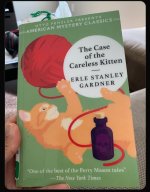Thanks for the recommendations, Sceptical. Looking up many of these now. "Aftermath" sounds especially interesting to me.
Aftermath is excellent, - I recommend it strongly - and offers vignettes and perspectives not frequently encountered in historical writing about that era, let alone about that country, at that time.
Among other things, it is subtle and sophisticated in how it treates women, their lives, aspirations and altered - nay, transformed - positions, postwar: For some women, paradoxically, the immediate postwar era was liberating. They were able to find work - and were generally seen by the Allied occupation as less threatening than male Germans.
For example, "GI Brides" are described (I think, probably correctly) as not simply "marrying for money/security/position", not simply marrying GIs because so many German males had been killled or seriously injured during the war, but also sometimes using the opportunity presented by the possibility of such marriages to escape a stifling (and poverty stricken), defeated (and disgraced) country, that denied them opportunities (personal and professional) that had been in thrall to a robust patriarchal and nationalist ideology (all that "Fatherland" nonsense), suffocating class distinctions, and conservative traditions.
Anecdotally, (because I have worked with many Germans over the years), I have been told stories of returning POWS, some returning after a decade of imprisonment in the USSR, who returned to a transformed world; their wives worked, and had worked, had had to work, to support the family - and were financially independent and had become used to financial and personal autonomy in a society which had not - historically - prized such things.
The days of the classic "hausfrau" were well gone, and they were not about to willingly submit to a marriage with a brutalised, violent and resentful man, often suffering from PTSD, unused to female company after more than a decade of war (with atrocities) and appalling captivity in the Soviet Union, a man who still sometimes subscribed to disagreeable theories about the master race, and a woman's place, views sometimes reinforced with fists; their children had grown up in a different world, and had (for the most part) thoroughly repudiated the values and mindset of the Nazis, which they had come to loathe. Divorce rates soared (the book discusses some of this), while the children, who challenged their returning parent, or avoided them - especially sons of such marriages - were profoundly alienated from their returning parent, who tended to find these changes unsettling (for they were all about upending "natural" hierarchies) and extraordinarily difficult to deal with.
But, it deals with much more than this; an excellent, thought-provoking read.

